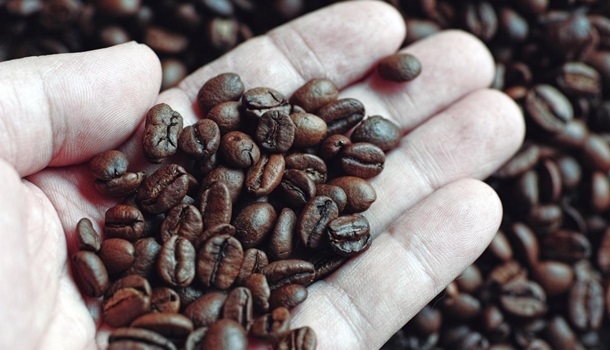People love and hate coffee, so drink it!
Is coffee a health killer?
For professional baristas, please follow the coffee workshop (Wechat official account cafe_style)
Drinking coffee has its own advantages and disadvantages. Consuming too much coffee can have many adverse effects on the body, such as not falling asleep easily, hurting the stomach, increasing cholesterol, blocking iron absorption, and increasing the risk of osteoporosis. However, if you drink properly and drink the right amount of coffee every day, you can actually reduce the risk of Alzheimer's disease and Parkinson's disease, and reduce the incidence of gallstones and fatty liver.

No matter how busy you are, would you like a cup of coffee?
Coffee is a drink that many people can't skip for a day, but some people regard it as a healthy poison, so if you want to discuss the quality of coffee, you can probably hold a debate contest that can be debated day and night. I remember that when I was studying in graduate school, I often smelled the fragrance of coffee coming from the professor's office, and a group of teachers and disciples who studied nutrition often discussed various nutrition topics in the coffee. Will this picture be ironic? Do people think that people who study nutrition should not drink coffee? In fact, coffee really has both positive and negative effects on health, and you must drink it in moderation depending on your health.

Drink the right coffee is to enjoy!
Coffee is really a lovely and frightening drink, and its strong aroma is an irresistible temptation. However, according to the statistical results of various studies, it is found that the drip coffee served by general coffee shops is a cup of 230c.c. It contains about 85 milligrams of caffeine (each house increases or decreases according to the concentration of coffee). Basically, it's best not to consume more than 300 milligrams of caffeine a day. Moreover, I suggest that unless necessary, try not to drink decaffeinated coffee, because when removing caffeine, you must use organic solvents, so decaffeinated coffee will have some residual organic solvents that affect your health. Some pregnant women order decaffeinated coffee in order not to drink caffeine, but there is a risk of drinking organic solvents. However, since supercritical extraction is often used in the food industry, doubts about residual organic solvents have been greatly reduced. In addition, some instant coffee is roasted with coffee raw beans, and then mixed with coffee flavor spices and cream, drinking such "coffee" will not get the benefits of coffee.

Coffee that people love and hate.
Let's take a look at the true face of coffee.
Caffeine is the first thing that comes to mind for many people about the substances contained in coffee. In fact, coffee beans contain quite a lot of substances, so the health effects of coffee are not limited to caffeine. Let's explore the advantages and disadvantages of coffee on the body according to different parts of the body:
Effects on the head and brain
[advantages]
1. Reduce Alzheimer's: many studies have found that people who drink 2 to 5 cups of coffee a day are less likely to develop Alzheimer's in old age than those who don't drink coffee or drink less than 1 cup a day.
two。 Cognitive enhancement: according to research, if the elderly can drink coffee regularly, it can increase cognitive ability and short-term memory.
3. Reduce the risk of Parkinson's disease: research shows that people who have a regular coffee drinking habit are less likely to develop Parkinson's disease in old age.
4. Relieve headaches: caffeine has an analgesic effect and can relieve migraines and headaches.
[shortcomings]
1. Cause anxiety and sleep disorders.
two。 Some people who drink too much coffee have symptoms of restlessness, restlessness and inability to sleep.

Effect on liver and gallbladder
[advantages]
1. Reduce fatty liver: some studies have found that coffee drinkers can reduce the incidence of fatty liver, especially for alcohol-induced fatty liver.
two。 Reduce the risk of gallstones: studies have shown that people who drink 2 to 3 cups of coffee a day are 40% less likely to get gallstones than people who never drink coffee. However, people who drank low caffeine had no lower risk of gallstones.
[shortcomings]
Nothing has been found so far

Effects on cardiovascular system
[advantages]
1. Reduce the risk of myocardial infarction in women.
two。 A study in Spain for more than 20 years found that women who drank 2 to 3 cups of coffee a day reduced the death rate from heart attacks by about 25%.
[shortcomings]
1. Increase cholesterol: coffee beans contain cafesterol, a compound that increases cholesterol in the body, especially in women. In general, if coffee is directly brewed by machine without filter paper, it is easy to contain coffee oil alcohols; if coffee is boiled and then filtered with filter paper, it will remove most of coffee oil alcohols and reduce the risk of increasing cholesterol. Therefore, it is recommended that coffee should be filtered with filter paper.
two。 Increase the risk of anemia: some people are used to having a cup of coffee immediately after a meal, which can easily hinder the absorption of iron in the meal, resulting in iron deficiency anemia. It is best to drink coffee 1-2 hours after a meal.

Effect on gastrointestinal tract
[advantages]
1. It can help defecate.
two。 Coffee is a good substance to help the intestines wriggle, when defecation is not smooth, you can try to drink a little black coffee, there will soon be a sense of constipation, can relieve constipation.
[shortcomings]
1. Sometimes it hurts the stomach easily.
two。 Coffee is easy to damage the gastrointestinal mucosa, so it is recommended not to drink coffee on an empty stomach. Stop drinking coffee if you have gastritis, gastric ulcer or duodenal ulcer.

Effect on metabolism
[advantages]
1. It has a reduced risk of diabetes.
two。 People who drink coffee regularly every day can reduce the risk of developing type 2 diabetes.
Impact on women
[shortcomings]
1. Increase the risk of osteoporosis: drinking coffee has a great impact on the bone mineral density of postmenopausal women. Drinking a lot of coffee after menopause will increase the risk of osteoporosis. It is recommended that postmenopausal women drink coffee, limited to 2 cups a day. And it is best to drink coffee with milk (not cream or cream balls).
two。 Increase the risk of preterm birth: the study found that the more coffee consumed, the higher the chance of preterm birth for pregnant women, so pregnant women had better not drink coffee, and if they really want to drink it, taste it with a cup.

Health advice
1. Everyone should drink coffee according to their own physical condition, learn to inquire or ask about the caffeine content of regular coffee, no more than 300 milligrams of caffeine per day is the safest.
two。 No matter what kind of coffee you drink, it is recommended to filter it with filter paper first, which can filter out the substances that increase cholesterol.
3. Do not drink coffee immediately after meals so as not to affect iron absorption, causing anemia for a long time.
4. If women want to drink coffee after menopause, it is recommended to add milk to the coffee.
Important Notice :
前街咖啡 FrontStreet Coffee has moved to new addredd:
FrontStreet Coffee Address: 315,Donghua East Road,GuangZhou
Tel:020 38364473
- Prev

Coffee beans take five years to harvest! Delicate Arabica beans and their own housekeeper.
The exchange of professional baristas Please follow the coffee workshop (official Wechat account cafe_style) first introduce the two families of coffee beans, the ── Arabica family and the Canephora family. Canefra is generally called Robusta, but Robusta is actually only a branch of Kanefra, because it is widely known.
- Next

Is matcha latte equal to green tea? As a matcha controller, you must understand
Professional barista communication please follow the coffee workshop (Wechat official account cafe_style) are you a matcha control? Do you know whether green tea is the same as matcha? The Food and Drug Administration of the Ministry of Weifu has given the answer that the raw materials of matcha powder and green tea powder are both "green tea", but the production process is slightly different. Qiu Chuifeng, deputy director of the tea improvement farm of the Council of Agriculture, said after an interview with the media that as far as he knows, Taiwan does not have
Related
- Beginners will see the "Coffee pull flower" guide!
- What is the difference between ice blog purified milk and ordinary milk coffee?
- Why is the Philippines the largest producer of crops in Liberia?
- For coffee extraction, should the fine powder be retained?
- How does extracted espresso fill pressed powder? How much strength does it take to press the powder?
- How to make jasmine cold extract coffee? Is the jasmine + latte good?
- Will this little toy really make the coffee taste better? How does Lily Drip affect coffee extraction?
- Will the action of slapping the filter cup also affect coffee extraction?
- What's the difference between powder-to-water ratio and powder-to-liquid ratio?
- What is the Ethiopian local species? What does it have to do with Heirloom native species?

